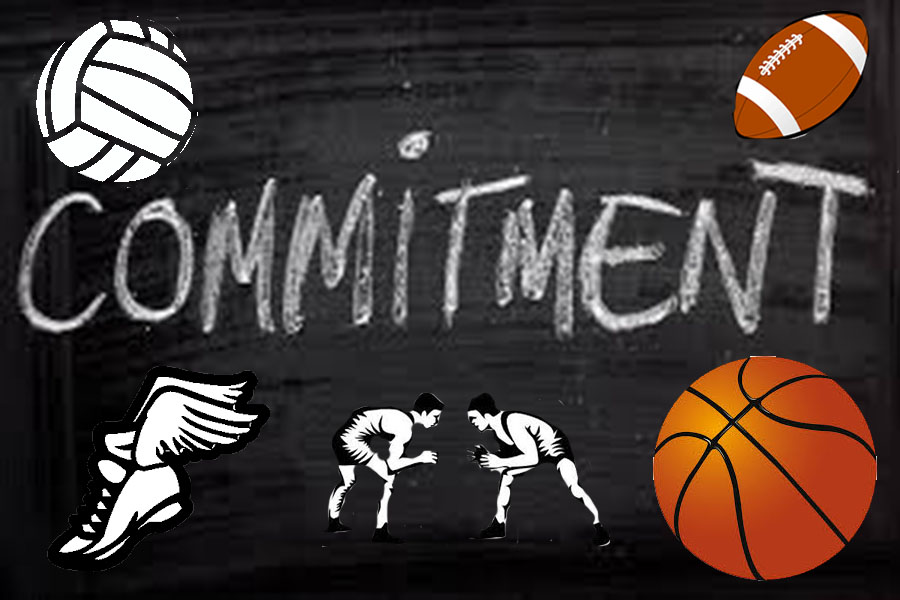Are You Committed?
“It’ll be fun!” “The team needs numbers!” “It’ll keep you in shape for other sports!” These are phrases commonly said to those wavering between either going out for a sport or not. Although yes, the team may need numbers and it will keep you in shape for other sports, is it hurting the team as a whole? Is not being committed to the sport hurting the team?
Nearly all people who play one sport play another one as well. Oftentimes, they favor one over the other; sometimes so much so that they do not even enjoy the other sport they are participating in. If this is the case this could be bringing the whole team down.
When interviewed on the matter, head volleyball coach, Jessica Kaiser, explained that when someone does not have a commitment to the team, then they can be a cancer to the team which will affect it. However, she believes that “Multiple sports is beneficial. It puts [athletes] in different situations and challenges them mentally and physically which will help them in the long run.” Coach Kaiser remarked, “If they don’t have a good attitude with it, because if it’s something that they’re not all in with that could be hard. But it could help them mentally.” When asked as a coach how she handles athletes not being committed, she replied, “I have a conversation with athletes alone. We go from there, talking to them about their choices. We try to find a way to motivate them.”
Weights, baseball, and softball coach Carlos Palomo asserted, “It’s better that kids play more than one sport. It challenges them mentally and reduces injury; creates a better bond. It helps them be consistent with academics and stay out of trouble; to understand what it’s like to be part of something bigger than themself.” Coach Mo says, “What kids don’t understand is that essentially their actions, what they do every day, is just a piece of the puzzle. They can’t just be in a few months, they have to always be all in. It’s a full-time commitment.” He commented on the question of should athletes play the sport, even if they don’t particularly like it much, “Essentially it’s up to the kid to make the decision, but it can be a cancer to have a teammate who is not fully bonded in but out for the sport. They could at least give it a try though. I do believe sometimes kids nowadays are scared of competition, not only with opponents but with competing for a spot; they don’t like failure.” He stated, “Here’s the thing with high school sport, you can’t make anything mandatory. The sports I do coach, I give everyone equal opportunity. Having face to face confrontation and communication is important. Pre and post-season evaluations to see how the kid is doing, what their strengths and weaknesses are and what they can improve on.” He commented that if you’re a true competitor, you’re gonna compete with everything, but not everyone is like that.
Three-sport athlete, Amauri Browning commented that she thinks if you play one sport you should play another as well because it will be beneficial. She believes if you don’t enjoy it you shouldn’t be forced to play and that if someone has a lack of commitment if it will affect the team because they have to be all in for the team.”
Two-sport athlete, Zane Stoike stated that athletes who play one sport do not need to play another one because it is their choice. He explained that you have to be committed or it will hurt the team. Stoike commented, “You have to buy-in. Everyone has to be all in and have that commitment to the team.”
Ultimately, those who are not committed to a sport could end up hurting the team. This brings up the question, should you play a sport if you really don’t want to? This is all up to an athlete’s attitude and whether or not they realize that they will get out what they put into it and it could help them with their other sports.

Hi everyone! I’m Shelbee Burke, a senior at AHS. This is my third year writing for the Spud and I am the Co-Editor and Chief with the exquisite Morgan...











